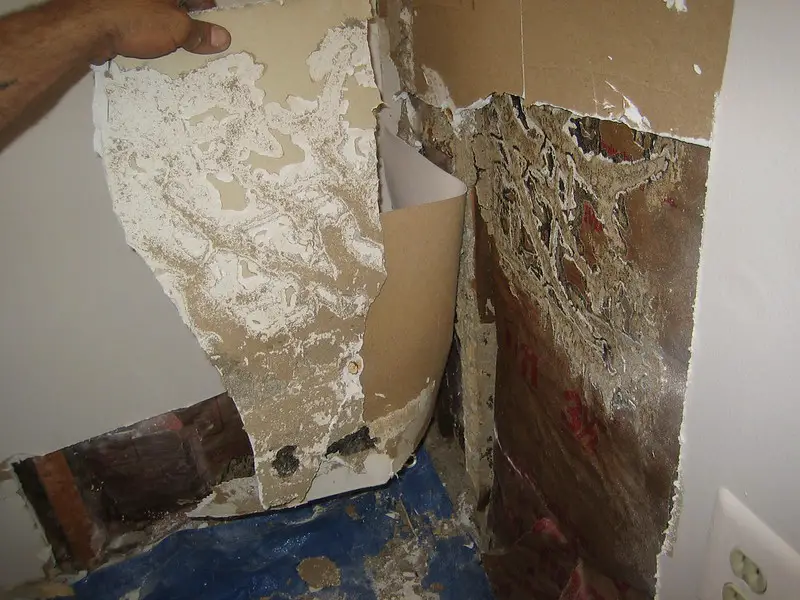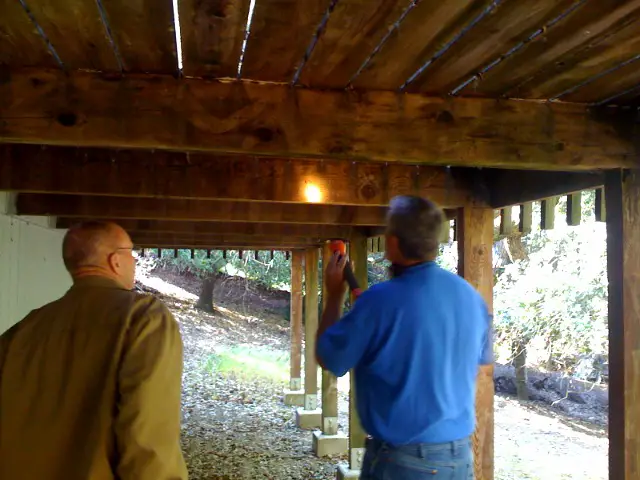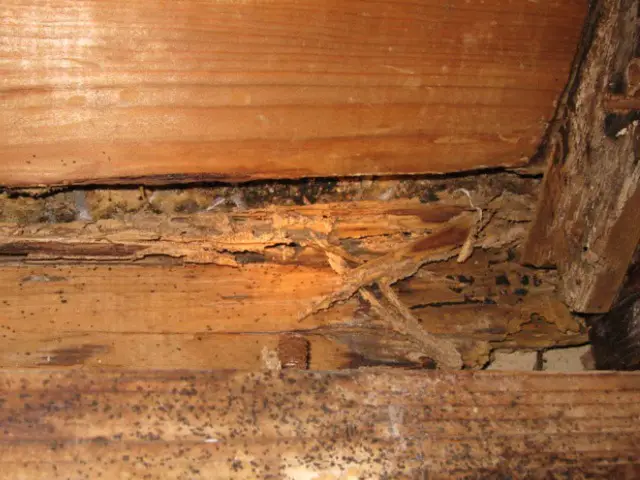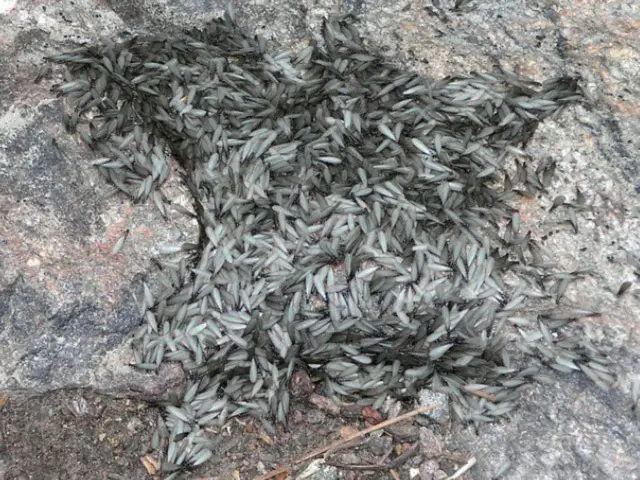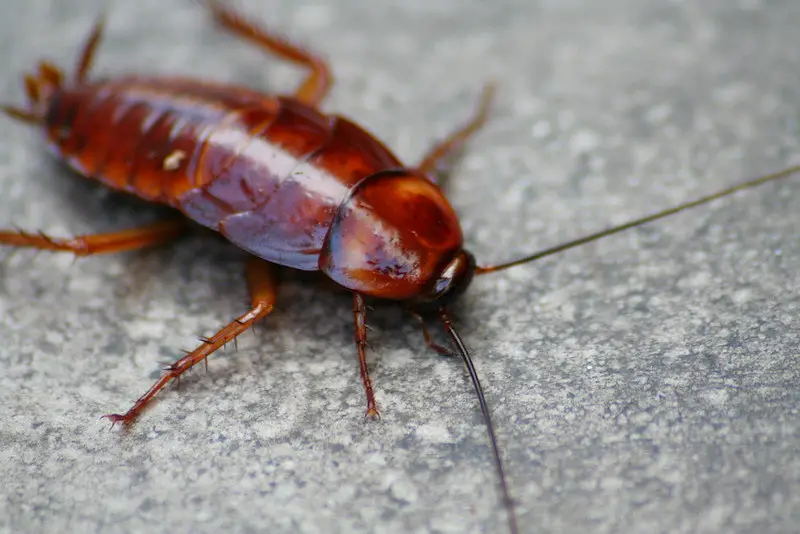Is termite inspection required for an FHA loan?
If the appraiser sees the need, a termite inspection is required for FHA loans. You must get a professional termite inspection if the appraiser sees signs of termite damage.
Termite damage must be repaired before the FHA loan is approved. In most cases, the homeowner will pay for termite inspections and repairs.
Related posts:
- How To Prevent Termites In Ohio?
- How To Prevent Termites In Georgia?
- Can You Get Rid Of Termites Without Tenting?
- How To Prevent Termites In California?
- How To Prevent Termites In Michigan?
- How To Prevent Termites In New York?
- How To Prevent Termites In Texas?
Is termite inspection required for a VA loan?
A termite inspection is required for VA loans if the appraiser sees one need. When you buy a house with a VA loan, the home must be professionally appraised. And if the appraiser notices signs of termite damage, you must have your home inspected for termites.
Appraisers must report signs of termite damage they find. Either the seller or buyer can pay for the appraisal.
The Department of Veterans Affairs requires a separate termite inspection report. The VA rules require the homeowner or seller to pay for the termite report.
All termite damage reported must be repaired before the VA loan is approved.
Is termite inspection required for a USDA loan?
A termite inspection is not required for a USDA loan unless the appraiser sees the need for one. Additionally, the lender may require a termite inspection for loan approval.
Is termite inspection required for escrow in California?
A termite inspection is not required in California for property sale escrows. The termite inspection is the negotiable part of real estate transactions in the state of California.
Buyers can request the seller for a recent termite inspection report. And if there is termite damage, the seller can ask the seller to repair all termite damage.
Some mortgage companies require a termite inspection. Before you apply for a mortgage, ask your mortgage broker if the lenders they work with require a termite inspection as part of loan approval.
Important: In California, the buyer isn’t responsible for paying for a termite inspection during escrow if the home is financed with a mortgage. But, lenders will require that the property be inspected for termites before loan approval.
Is termite inspection required for condos in California?
A termite inspection is not required for condos in California because condos are multi-unit dwellings.
What is a Termite Inspection?
A termite inspection is a visual inspection for termites, termite nests, and termite damage. The goal of the termite inspection is to determine if there is a termite infestation in a house or business. The termite inspection will also assess if there is damage to the property. Homeowners, property managers and termite control professionals can conduct a termite inspection. Of course, it’s best to hire a trained professional to complete a termite inspection in your home. Yearly termite inspections are necessary to detect termites.
Related posts:
- How To Prevent Termites In North Carolina?
- How To Prevent Termites In Florida?
- What Are Common Termites In Florida?
- How To Prevent Termites In Illinois?
- What Does A Termite Nest Look Like?
- What Are The Early Signs Of Termite Damage?
When to do termite inspection?
Most pest control contracts provide for an annual termite inspection. A complete termite inspection includes a visual inspection of the inside and outside of the home and probing or tapping of wooden members of the structure.
A termite inspection should take at least an hour for an average-sized home. Homeowners implicitly rely on their pest control company to find termite infestations during inspections. However, ff a termite control company inspector discovers an active termite infestation in a house with a repair or retreatment bond. The termite company will be responsible for the retreatment and repairs, which increase its expenses and reduce its profits. This inherent conflict of interest may cause some unscrupulous companies to ignore signs of termite infestation.
To protect your house, homeowners must be proactive and inspect their own homes every three months. They should look for signs of termite infestation, such as swarms, pinholes, blistering paint, soft base and window molding, and mud tunnels on the inside and outside of their home.
Termite inspection methods are one of the least understood parts of buying a home. In some U.S. states, an inspector does not have to disclose known damage if he doesn’t physically see it at the time of the inspection. When performing a termite inspection for a real estate transaction, the inspector must use a required form. A termite inspection may be limited to what is VISIBLE at the time of the inspection.
If there is damage behind a box or under a rug, the inspector is not required to report it or even to move the box or rug (even if he KNOWS there is damage there). And there is no requirement for the inspector to provide the buyer with a copy of the latest inspection information. A state-required termite inspection form may not be a complete and thorough report. If you have any reason to believe there may have been termite problems at a house you’re buying, ask to see the entire set of termite treatment and inspection records for the house.
Free Termite Inspection
If you’ve just realized you have termites in your house, it can be a very stressful situation for you. Termites – if left untreated – can damage your home. And in some extreme cases of termite infestations, termites can destroy a house. However, there are steps you can take to get rid of termites. The first action you should take is getting a free termite inspection.
Is a free termite inspection a scam?
Whether you plan to solve the problem yourself or hire professional help, you should first get a termite inspection. Many companies offer to free termite inspections. Of course, they are doing this hoping that you will hire them to take care of the problem. But there is no compunction on your part to take them up on this.
Getting a termite inspection will give you a much better understanding of the extent of the termite problem you are facing. After the termite inspection, you will know where the termites are located and the possible measures you should take for getting rid of termites.
Possibly, after the termite inspection, you may learn that you don’t have a termite infestation. Even if the termite inspector finds dead termites in your house, it’s possible not to have a termite infestation. Termites will fly from their current nest at certain times of the year in an attempt to find a new place to settle. When that happens, you may find termites in or near your house. Therefore, seeing termites around your house is not necessarily a cause for concern.
Equally, you may have a problem, and it is worse than you had expected. Termites tend not to make themselves known in a house until the problem has already reached an advanced stage. From the outside, wood can look completely normal but tap it gently, and you will hear a hollow sound. Termites very rarely break through the outside of the wood and, when they do, will often attempt to repair the damage. So if you notice termites, there’s a good chance the infestation is already quite advanced.
If you have any worries about termites in a house, the best course of action is to get yourself a free termite inspection to know the full extent of the problem.
Termite inspections for real estate transactions
Before buying a house, you should consider hiring a termite inspector. Termite inspectors can provide you with a report. The termite report will outline any termite damage or infestations. The termite inspector will also explain the areas that may incur future termite infestations. Areas vulnerable to termite infestations are lower levels of a home and open access points in the foundation. Professional termite control companies can assist in fixing areas that pose a threat of termite infestation.
The results of a termite inspection should not deter you from buying a house. However, a termite report should help you negotiate necessary termite treatment and repairs on the property. Sellers may be more open to negotiating on the price if termite infestation and damage is found.
How long does a termite inspection take?
A termite inspection should be completed in under one hour. But the exact time for a termite inspection depends on the size of the property. In addition, the home’s condition, such as clutter, storage of personal items, etc., will influence how long a termite inspection takes.
What happens during the termite inspection?
You’ll be happy to know that a termite inspection is not a very time-consuming process. The termite inspection should be done in about one hour. But, of course, this time frame varies based on the size and conditions of your home.
The termite control technician will thoroughly inspect your home for termite nests and termite damage during the inspection. The pest control professional will look at the interior and exterior areas of the property. This allows the inspector to check for visible signs of a termite infestation.
The termite control technician will look for:
- Damaged wood
- Termite droppings
- Broken termite wings
- Mud tubes
The inspector will examine the walls, door frames, insides of closets and cabinets, baseboards, windows, crawl spaces, and door frames. During the termite inspection, the technician will need access to every area of your house, including the garage and attic. They will also inspect utility rooms, bathrooms and the kitchen. This is an important part of every termite inspection because subterranean termites frequently use the places where plumbing penetrates the slab to get inside your home.
Outside your house, the termite inspector will look at the eaves of the house and exterior. A close examination of the foundation is also critical when it comes to termite inspections. In addition to signs of termites and termite damage to the wood, the inspector will look for mud tubes on the foundation. Then, having thoroughly inspected the home itself, the pest control professional will move on to the surrounding property and yard to ensure those areas are not showing signs of termite activity.
How to prepare for a termite inspection?
Smart homeowners take termite inspection seriously. Termite control is important for keeping termites from invading your home. A termite inspection is the most critical part of a termite prevention strategy. Before the termite inspection, it’s good to know what to expect.
It’s easy to prepare your house for a termite inspection. But there are a few things you can do to make the inspection run more smoothly.
What are the steps to prepare for a termite inspection?
Clear out anything you have stored under your kitchen sink. Do the same for your bathrooms. The spaces under the sinks must be cleared so that the inspector can check your water sources for termite activity. Inside the garage, move everything at least two feet away from the walls. You need to move items two feet away from the outside walls of your home.
Provide easy access to the attic for the termite inspection. Anything blocking the entrance to your attic should be cleared before the inspection. The inspector needs access to the attic. You should also make sure no debris falls from the attic during the termite inspection.
Make sure there is easy access to the crawl space if your house is built on a raised foundation. Clear the opening to the crawl space and move any items blocking the entrance. Make sure nothing stored in the crawl space will impede the termite inspector’s work.
Get your landscaping ready for the termite inspection. Trim any plants like ground cover or bushes that conceal the foundation or exterior walls.
Termite Inspection Mistakes
As a home buyer in the United States, you may be required to have a termite inspection performed on the house you want to buy before getting your mortgage approved. Check your state for termite inspection requirements for buying a home.
Termite inspection mistake #1 – Hiring the same termite company to do your termite inspection report that currently services the house.
While it seems to make sense to bring in a company that is familiar with the house to do the termite inspection, consider this: That pest control company has no motivation to find problems. First, some contracts convert from a repair guarantee to a retreatment guarantee upon the sale of a home. Second, if they find problems, they will probably have to fix them under the terms of their contract with the current owner. This is a tremendous conflict of interest – in this situation, the company is working for both the seller and the buyer.
Worse, some state laws do not require the pest control company to report what they know about the house. For some state requirements, the termite inspector is only required to report what he SEES at the time of the termite inspection.
Termite inspection mistake #2 – Assuming that “retreatments” are good things.
Most people assume that a past “retreatment” is some kind of termite preventative measure, similar to treating for roaches or ants. It’s not. Under some state laws, termite control companies are only allowed to perform additional treatments if there is an infestation of termites. So if your termite inspection or seller’s disclosure statement indicates the house has been “retreated,” it really means there have been infestations before.
The subtle point here that no one outside the pest control industry understands is the subtle distinction between the words “treatment” and “retreatment.” The “treatment” is the original preventative application of pesticide. If referred to as a “pre-treatment,” that means the original treatment was performed prior to construction. This is a good thing.
A “retreatment,” on the other hand, is a subsequent application of pesticide to kill a termite infestation. So any “retreatment” is BAD. Unfortunately, some termite control companies may not make this distinction clear until you ask them why they didn’t tell you about termite problems earlier. “But we told you we did a RETREATMENT. Don’t you realize that means there was a termite infestation?”
Termite inspection mistake #3 – Not getting complete disclosure of existing termite damage.
It is absolutely essential that you specifically and clearly ask your termite inspector to disclose all known termite damage to you. Whether it is visible or not, hidden or not, YOU HAVE TO ASK to get complete disclosure of existing termite damage. Inspectors from reputable companies will tell you about prior damage and what will be excluded from future repair claims if you ask them.
Termite inspection mistake #4 – Not asking for the records.
If there are any indications that the house has had a termite problem or damage before, no matter how minor, ask the sellers to get you a complete copy of the treatment records from their termite company. Better yet, have them sent directly to your realtor or to you. You’ll want to look for graphs in the records, which are hand sketches of the floor plan of the house that will indicate past termite infestations, known damage, suspected damage, and conditions that are conducive to future termite infestations. These graphs are the key to understanding the history of the house.
Get them, ask questions, understand them. If in doubt, show them to someone from another termite company (who will be pleased as punch to explain them to you in hopes of getting your business).
